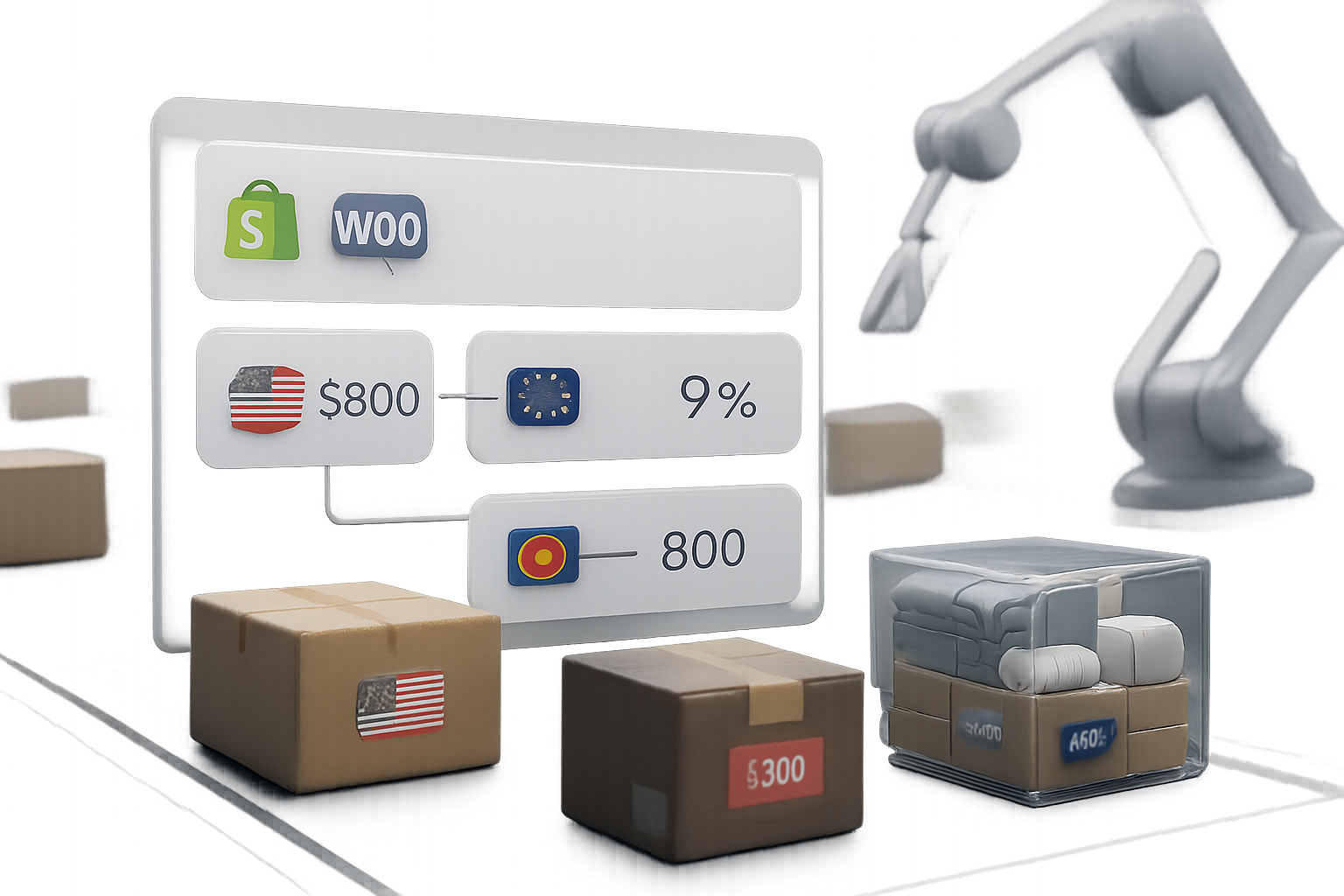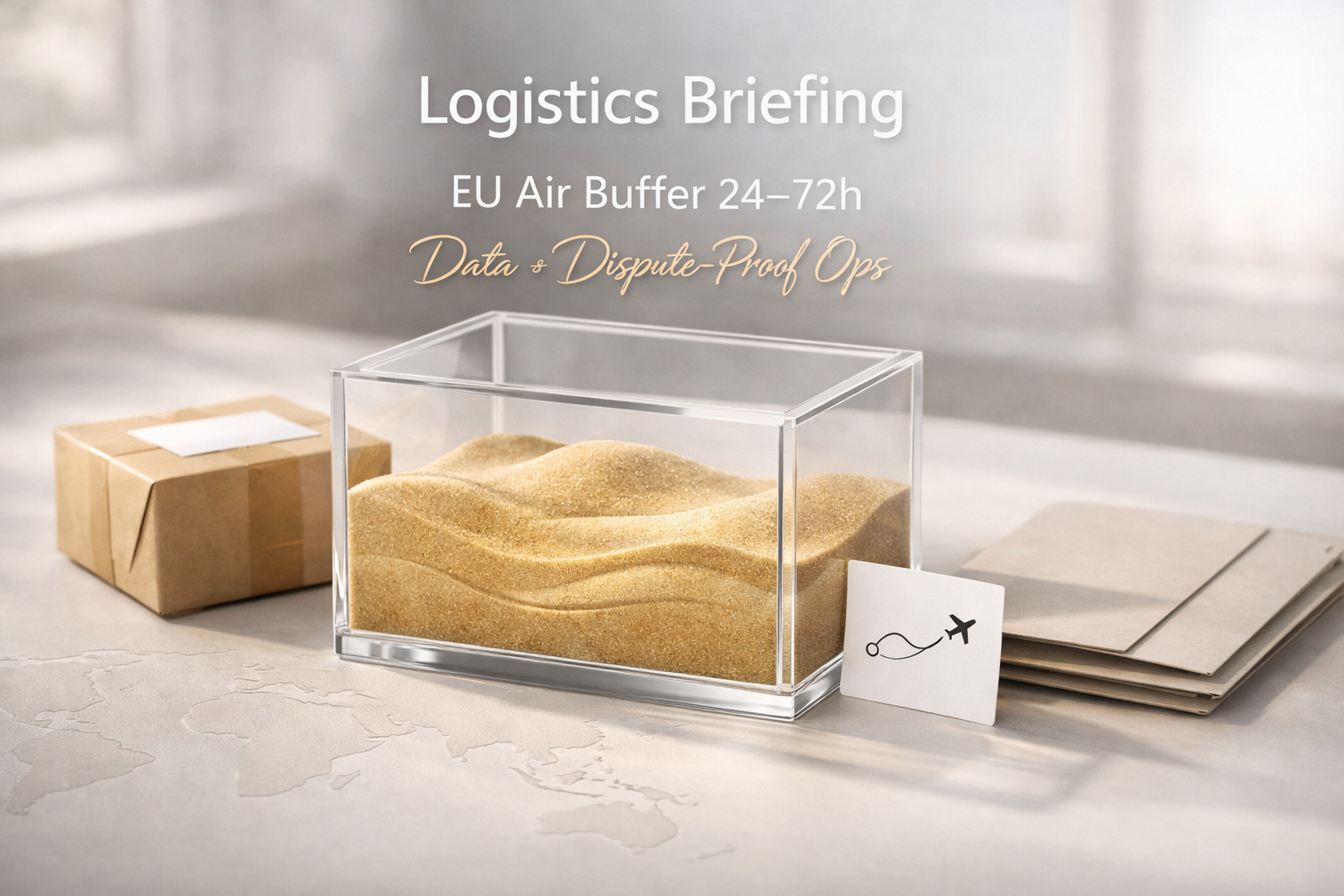Daily Cross-Border E-Commerce Briefing | August 7, 2025
1. Shopify’s B2B Sales Double as Global Brands Onboard
- Shopify revealed that its Q2 business-to-business GMV has surged 100 % year-over-year, driven
by large consumer-goods brands opening wholesale storefronts on Shopify Plus. For independent
Shopify sellers running a one-click dropshipping model, the data confirms a rising appetite for
low-MOQ bulk orders that can be fulfilled straight from Chinese suppliers to overseas retail
partners. This trend also underscores the growing need for automated inventory sync, real-time
wholesale pricing and seamless order routing—keywords that rank well for “Shopify B2B wholesale
dropshipping fulfillment.”
Source: Digital Commerce 360, Published on: August 6, 2025
2. US Adds 25 % Tariff on Indian Oil Imports
- President Trump’s new executive order imposes an extra 25 % duty on Indian oil-related
imports, bringing the combined rate to 50 %. While not directly tied to consumer goods, the policy
could raise freight fuel surcharges and squeeze shipping budgets for cross-border sellers. SEO term:
“Indian oil tariff ripple effect on cross-border logistics costs.”
Source: KOLD News/AP, Published on: August 6, 2025
3. Avalara Updates Guide on ‘Reciprocal Tariffs’ Compliance
- Tax-tech firm Avalara refreshed its July blog on August 6, introducing a step-by-step
calculator for businesses to model “reciprocal tariffs” under pending trade acts. Dropshipping
entrepreneurs can input HS codes and shipping origins to forecast duty liability—a must-have tool
for SEO phrase “calculate reciprocal tariff cost for dropshipping products.”
Source: Avalara, Published on: August 6, 2025
4. Shein Fined €1 M for Greenwashing in Italy
- Italy’s competition authority has fined Shein €1 million (≈ US$1.16 million) for vague or
unsubstantiated sustainability claims, demanding corrective disclosure within 90 days. The case
signals tougher European scrutiny of “eco-friendly” marketing. Shopify and WooCommerce merchants
targeting EU consumers with one-click dropshipped products should provide transparent material
sourcing, carbon-footprint data and recycling instructions to avoid similar penalties. Keyword
cluster: “sustainability compliance for EU dropshipping.”
Source: ESG Dive, Published on: August 6, 2025
5. IRS Warns E-Commerce Sellers of Heightened 1099-K Audits
- The U.S. Internal Revenue Service reiterated on August 6 that it will strictly enforce the
US$600 1099-K threshold in 2025, explicitly naming Shopify, Etsy and Amazon merchants. Dropshipping
sellers must reconcile PayPal, Stripe and credit-card payouts, archive digital invoices and prepare
for potential back-tax assessments. SEO-rich wording: “1099-K tax compliance checklist for Shopify
dropshippers.”
Source: Yahoo Finance, Published on: August 6, 2025
6. TILOG-LOGISTIX 2025 to Showcase AI-Driven Smart Logistics
- Thailand’s flagship logistics expo (Aug 20–22, Bangkok) will feature 370 booths spanning
warehouse robotics, IoT tracking and cross-border e-logistics APIs designed for Southeast Asian
fulfilment. For one-click dropshipping brands seeking faster last-mile delivery into ASEAN markets,
the show offers a preview of AI-powered order-sorting solutions and regional 3PL integrations.
Long-tail keyword: “AI warehouse robotics for Southeast Asia dropshipping.”
Source: Lao Times, Published on: August 6, 2025
7. Stripe Moves Revenue Recognition to Subscription Pricing
- Stripe will convert its Revenue Recognition tool from usage-based billing to tiered
subscriptions starting this month. While small merchants processing limited volume may pay less,
high-growth dropshipping stores should model the new monthly fees against existing margins.
Merchants can export revenue summaries straight into accounting software to streamline compliance.
Phrase to target: “Stripe Revenue Recognition pricing for WooCommerce stores.”
Source: Stripe Support, Published on: August 6, 2025
8. US to Scrap $800 De Minimis Duty-Free Threshold
- Legal analysts confirm U.S. Customs will eliminate the $800 de minimis exemption in September,
meaning all low-value consignments—popular in dropshipping—will incur duties and processing fees.
Independent store owners should upgrade checkout apps to calculate landed cost in real time,
avoiding surprise charges that trigger delivery refusals. Search phrase: “end of de minimis rule
impact on dropshippers.”
Source: VitalLaw, Published on: August 6, 2025






